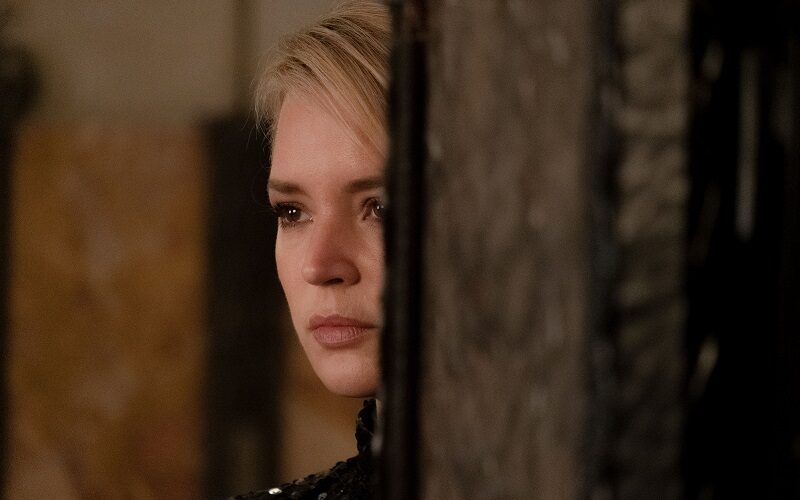Madeleine Collins (Barraud, 2021)
The complaint that a film has no likable characters or no one that the viewer can relate to is one of those critical tropes that is irritating when someone else says it about a movie that one likes.
Certainly, there are films about unlikable people that are popular or that a particular reviewer nevertheless admires. For many years, Vertigo was rated as the #1 film of all time by the BFI Sight and Sound poll, and its main character (Scottie, played by James Stewarts) is a controlling cad. The Godfather, The End of the Affair, The Talented Mr. Ripley, and The House of Mirth are examples of films that I admire despite being populated by characters that range from distasteful to repugnant. So it is accurate but insufficient to say that the reason I didn’t care for Madeline Collins was that I found nothing to like about the main character and little to empathize with in the supporting roster.
Madeleine/Judith/Margot (Virginie Efira) lives a double life, with two husbands, children in two countries, and jobs both in France and Switzerland. That she is unlikable is, apparently, by design. Writer/director Antoine Barraud says calls her actions “indefensible” in the press notes and later calls her a “monster.” It turns out (eventually) that some of the people she is lying to are in on the deception, but that ends up making them at least partially responsible for the damage done to the children by her lying.
If you think carefully about films that have unlikable protagonists, they are often structured with hidden backstories that contextualize their seemingly unforgivable stories. As my wife once said after watching The Godfather, nobody just wakes up and says, “I think I’ll go to hell today.” The road to perdition is built by small compromises or seemingly justifiable deceptions that accumulate into the seemingly unpredictable.
The way such structures often work is that they invite you to indict before you truly understand. Then they provide you with additional information that may change your calculus. Actions that initially appeared to be motivated by caprice or evil can be reframed as misguided or misappropriated acts of compassion or survival.
The reason this structure didn’t have that effect on me in Madeleine Collins is that the delayed explanation for the protagonist’s situation did not materially alter my judgment about her decisions. Such a structure can create compassion if it shows that an initial decision had an internal logic given limited information or that the consequences were unpredictable given the situation. I am not sure that is the case here. At a key point, perhaps the key point, Judith/Margot/Madeleine is confronted with a difficult choice. If she had chosen between her two lives, I would have had some empathy/sympathy regardless of which choice she made. That she chose to lie in an attempt to have both is understandable, but it doesn’t arouse much compassion in this viewer — in part because the consequences that follow in the rest of the movie seem completely and utterly foreseeable.
There remains a gendered reading that is possible. Most of the narratives about people living double lives are about men, so perhaps there is something new revealed about the situation by looking at it through the lens of gender reversal? If so, I missed it. What is unlikable and indefensible in a male character turns out to be … unlikable when done by a female character.
Madeleine Collins played at the Venice Film Festival in 2021, and it has overall positive reviews, so it is possible I missed something here. It opens n New York and Los Angeles on August 18th, 2023, and will be streaming in the United States approximately ten days later.

